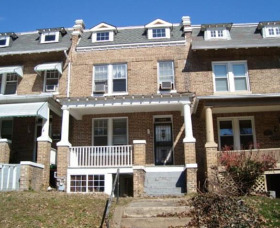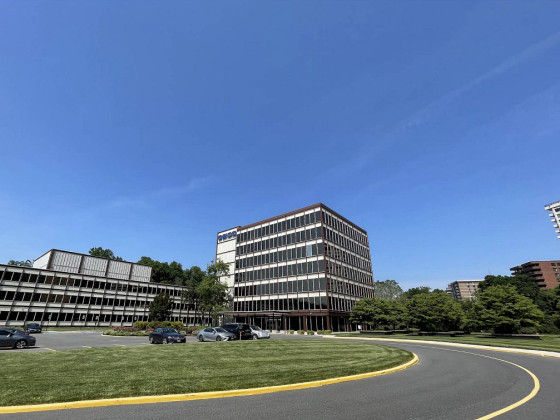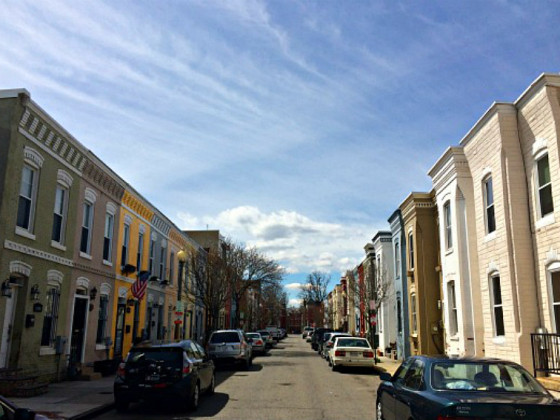What's Hot: A First Look At Friendship Commons, The Big Plans To Redevelop Former GEICO Headquarters
 The Ins and Outs of the Foreclosure Hunt
The Ins and Outs of the Foreclosure Hunt
✉️ Want to forward this article? Click here.
It is no secret that buying a foreclosure can be an arduous process that usually only yields results for the savvy, patient and resilient homebuyer. In this article, UrbanTurf will attempt to make the process, from searching to pricing, more transparent.
Redfin currently lists 219 foreclosures on the market in DC, with more than half of those east of the Anacostia River, and a good chunk of the remainder scattered downtown and in Hill East. (Note: While the majority of foreclosures are centered in certain sections of the city, the market is such that finding bank-owned properties in neighborhoods like Dupont Circle and Kalorama is becoming more and more common.)
It is very misleading to think that the Redfin count above represents the total number of foreclosures in the city, though. Banks like Wells Fargo and Bank of America keep their own records of foreclosures, which contain properties that are either not listed in traditional sources or have not yet hit the market (referred to as “shadow inventory”). Similarly, many foreclosed properties once owned by now-shuttered banks are in the hands of the FDIC, which also keeps its own database.

Foreclosure in Columbia Heights
Astute homebuyers and investors in the market for a foreclosure will use the databases to their advantage. If a property is discovered by a potential buyer prior to hitting the market, occasionally realtors will show the home while it’s being readied, meaning that a first-day bid is possible. Many banks will keep a property on the market for up to 10 days to see if a bidding war ensues, but it’s not uncommon for an offer that is submitted on the first day to be accepted quickly if it is at or near the list price.
As for the condition of the foreclosures out there, Long and Foster’s Justin Paulhamus told UrbanTurf that while plenty in DC are truly distressed and the work to salvage what’s left may not be worth the time, some require very little work and are great opportunities for first-time buyers to purchase homes they might not have ordinarily been able to afford.
However, pricing remains one of the big mysteries when it comes to foreclosures, according to Paulhamus.
“I’m still trying to figure out our financial institutions’ methodology,” he said. “Some banks market and sell their own properties, others contract out to vendors that then work with realtors to sell the property. In either case, a price threshold must be met, and that is determined by the bank’s internal analysts and a Best Price Opinion (BPO) provided by a local realtor.”
Paulhamus explained that the local realtor looks at the subject home and rates it across several factors, compares it to others within a very specific area, and then suggests a range of pricing that the bank takes into consideration. Paulhamus noted that this methodology is not ideal as the combination of untrained agents making incorrect pricing decisions and banks wanting to set the price higher can result in a price point that can be fairly off-base.
“What we are currently seeing in the DC Metro area is that homes have been incorrectly priced and price adjustments have been made in order to bring back some stability in the market and correct an inflated market,” Paulhamus explained. “Foreclosures have exacerbated the problem as realtors are still largely responsible for setting the price as the bank’s first line. If the agent isn’t properly trained and equipped with an arsenal of resources, the property might be priced incorrectly. Conversely, banks may disregard what an agent proposes and set the price higher. In these cases, the property stagnates and subsequent corrections occur.”
Pricing, time and all the other headaches aside, it can still be worth it. Full disclosure: I bought a foreclosed condo in good shape at well below list price, but not before wrangling with the FDIC, its contractor, legal representation and various others for the better part of three months. The key was staying in constant communication with everyone involved to ensure that my offer and the overall transaction was processed as quickly as possible.
If you have had an experience with foreclosure hunting, good or bad, let us know in the comments section.
See other articles related to: editors choice
This article originally published at https://dc.urbanturf.com/articles/blog/the_ins_and_outs_of_the_foreclosure_hunt/1922.
Most Popular... This Week • Last 30 Days • Ever

Today, UrbanTurf is taking a look at the tax benefits associated with buying a home t... read »

On Thursday night, developer EYA outlined its plans at a community meeting for the 26... read »

Only a few large developments are still in the works along 14th Street, a corridor th... read »

EYA and JM Zell Partners have plans for 184 townhomes and 336 apartments spread acros... read »

Today, UrbanTurf is taking our annual look at the trajectory of home prices in the DC... read »
- A Look At The Tax Benefits of Buying a Home Through a Trust
- A First Look At Friendship Commons, The Big Plans To Redevelop Former GEICO Headquarters
- Church Street, U Street + Reeves: A Look At The 14th Street Development Pipeline
- 520 Residences Planned For Former GEICO Campus In Friendship Heights
- The 10-Year Trajectory Of DC-Area Home Prices In 4 Charts
DC Real Estate Guides
Short guides to navigating the DC-area real estate market
We've collected all our helpful guides for buying, selling and renting in and around Washington, DC in one place. Start browsing below!
First-Timer Primers
Intro guides for first-time home buyers
Unique Spaces
Awesome and unusual real estate from across the DC Metro














